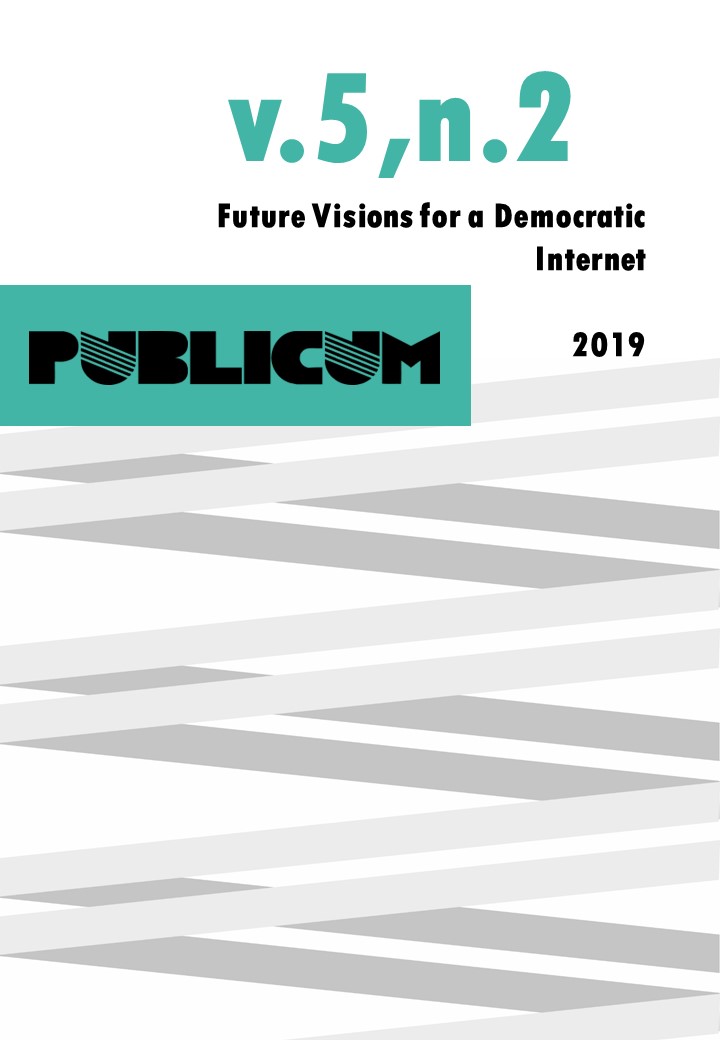Combating Discrimination: Internet Literacy to Strengthen Children’s Rights in the Digital Environment | Combate à discriminação: educação digital para fortalecer os direitos das crianças no ambiente digital
DOI:
https://doi.org/10.12957/publicum.2019.47203Palavras-chave:
Children’s rights, Internet literacy, participation, equality, discrimination. | Direitos das crianças, Tecnologia digital, Educação digital, Participação, Discriminação..Resumo
Abstract: The Internet has opened up innovative pathways for children to participate in social life. Besides making available an extensive body of knowledge and enhancing their communication, it has allowed children to show support for issues they care about. Giving children a voice in the public debate, digital technology may critically improve the democratic character of society and foster equality. However, the Internet is also a complex phenomenon and requires relevant knowledge and the competence to sift through information, searching and evaluating content. Such a pivotal need for ‘Internet literacy’ bears a remarkable potential for discrimination. Research has pointed out that only a small percentage of children reaches the most advanced step of Internet usage, with individuals with a higher socioeconomic status more likely to produce creative and politically relevant content than disadvantaged people. The article specifically focuses on the European situation, analysing the relevant legal framework to foster Internet literacy and children’s rights in the digital environment. It explores some pivotal pathways to address the issue together with the different actors, whose involvement is made unavoidable by the interdisciplinary nature of the digital world. This article argues for a stronger awareness on the risk of discrimination arising from the need of Internet literacy for children. Consequently, it advocates for a coordinated educational response by public and private actors to improve children’s rights in the digital environment irrespective of existing social inequalities.
Resumo: A Internet abriu caminhos inovadores para as crianças participarem da vida social. Além de disponibilizar um extenso corpo de conhecimentos e aprimorar sua comunicação, permitiu que as crianças mostrassem apoio aos problemas com os quais se preocupam. Dando voz às crianças no debate público, a tecnologia digital pode melhorar criticamente o caráter democrático da sociedade e promover a igualdade. No entanto, a Internet também é um fenômeno complexo e requer conhecimento relevante e competência para filtrar informações, pesquisas e avaliação de conteúdo. Uma necessidade tão essencial de educação digital traz um potencial notável de discriminação. Pesquisas apontam que apenas uma pequena porcentagem de crianças atinge a etapa mais avançada do uso da Internet, sendo que indivíduos com um status socioeconômico mais alto são mais propensos a produzir conteúdo criativo e politicamente relevante do que as pessoas desfavorecidas. O artigo concentra-se especificamente na situação europeia, analisando a estrutura legal relevante para promover a educação digital e os direitos das crianças no ambiente digital. Explora alguns caminhos fundamentais para abordar a questão junto com os diferentes atores, cujo envolvimento é inevitável pela natureza interdisciplinar do mundo digital. Este artigo defende uma conscientização mais forte sobre o risco de discriminação decorrente da necessidade de educação digital para crianças. Consequentemente, defende uma resposta educacional coordenada de atores públicos e privados para melhorar os direitos das crianças no ambiente digital, independentemente das desigualdades sociais existentes.
Downloads
Publicado
Como Citar
Edição
Seção
Licença
O autor do trabalho declara conhecer e concordar com as regras a seguir:
1) Realizou o trabalho apresentado à revista, sendo inteiramente responsável pelas ideias e conceitos nele emitidos, que não correspondem, necessariamente, ao ponto de vista dos Editores de Publicum.
2) Obedeceu, na realização do trabalho, os princípios éticos aludidos na política de avaliação da revista[RDN1] .
3) Assume a autoria e a responsabilidade pela obra, declarando que ela não infringe quaisquer direitos de propriedade intelectual de terceiros.
4) Responsabiliza-se, integralmente, por danos de natureza moral ou patrimonial que a veiculação da obra venha a gerar a terceiros.
5) Cede à revista os direitos de reprodução, edição e primeira publicação do trabalho em qualquer meio midiático, em particular sob forma digital, em arquivo eletrônico online na internet.
6) Confere aos Editores o direito de modificar o texto apresentado, sem prejuízo de seu conteúdo, quando necessário para uniformizar a apresentação dos trabalhos e para atender as normas de edição próprias da revista.
7) Concorda com a forma final do trabalho aprovada pela revista.
8) Autoriza a divulgação do trabalho nos canais de comunicação da Faculdade de Direito da UERJ.
9) Concorda com a reprodução de pequenos trechos do trabalho em outras publicações da UERJ.
10) Reconhece que, pela cessão e autorizações acima referidas, não receberá remuneração sob qualquer modalidade, tendo estas o caráter de colaboração científica.
11) Tem ciência de que a publicação do trabalho poderá ser recusada caso não considerada conveniente, por qualquer motivo que seja, sendo que tal recusa não gera responsabilidade e/ou ônus de espécie alguma à revista ou UERJ.
[RDN1]Ver COPE.

Publicum está licenciado com uma Licença Creative Commons Atribuição-NãoComercial 4.0 Internacional.

